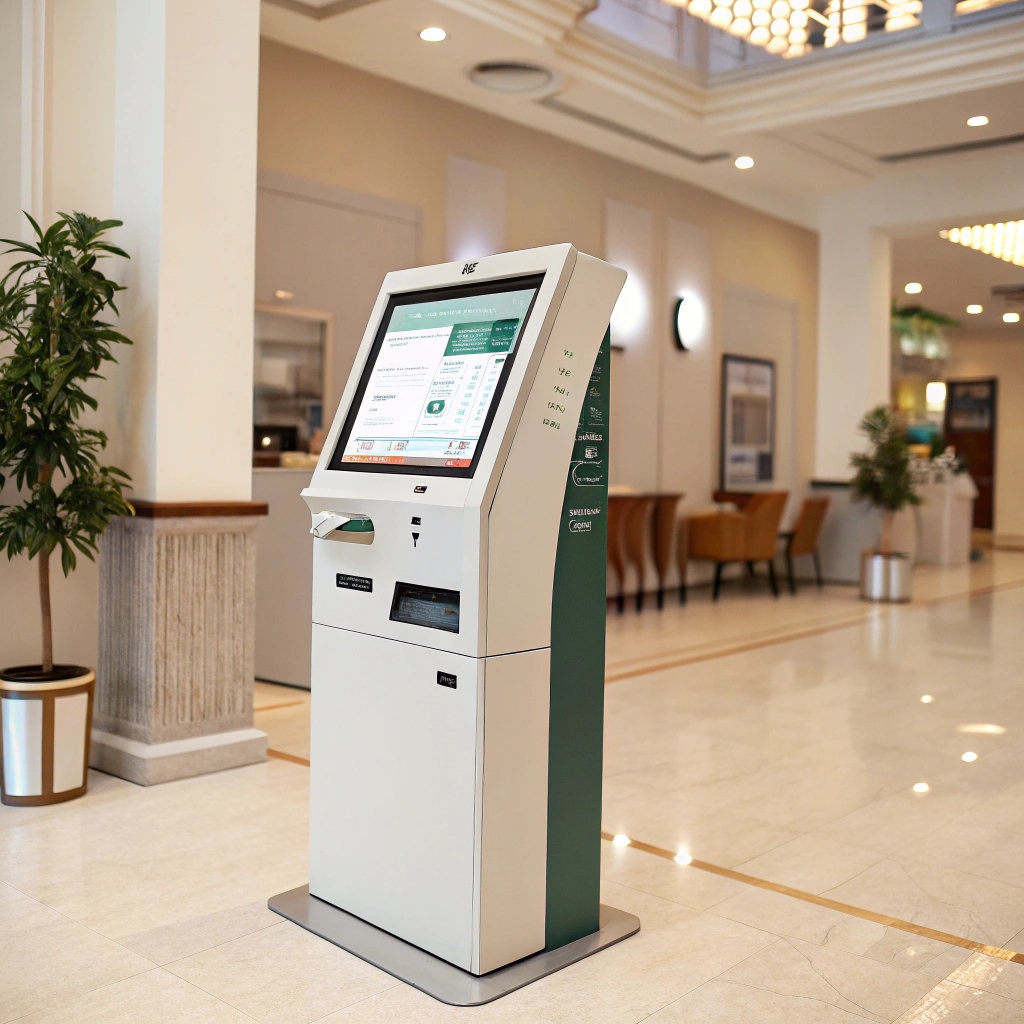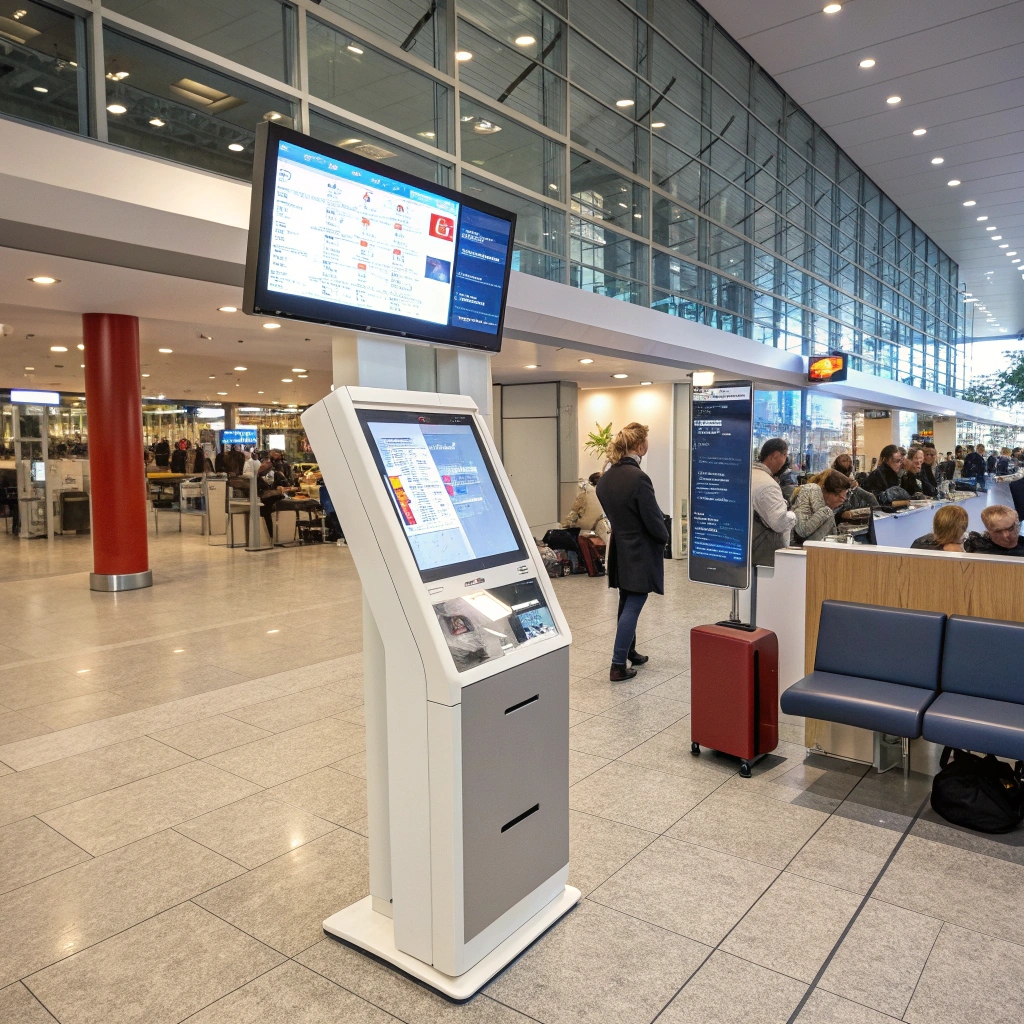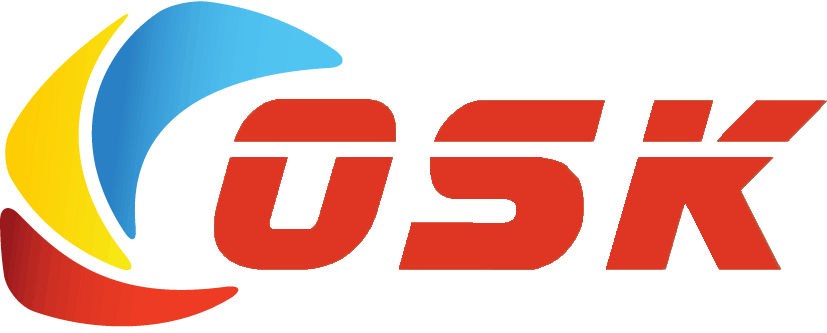Businesses face long waits and high staff costs. This hurts customer happiness and profits. Kiosks offer a smart, modern fix.
Self-service kiosks are vital because they boost efficiency, cut operational costs, and improve customer satisfaction. They empower users and streamline various business processes, making them essential tools.
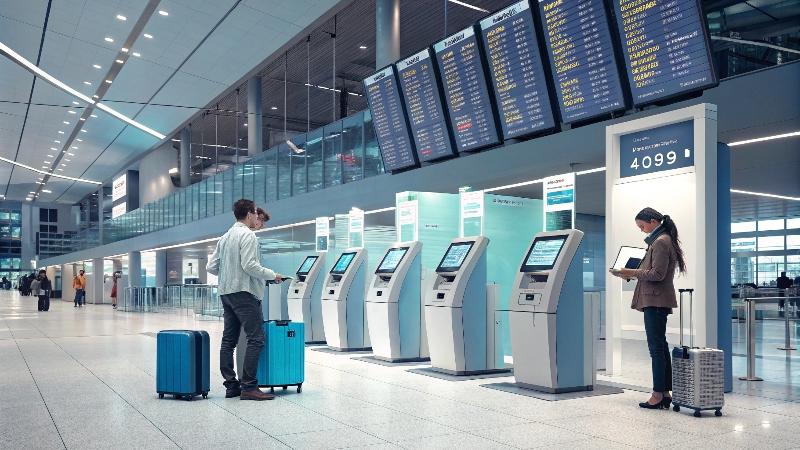
Now that we see their general importance, let's explore more specific ways these machines can transform your operations. You might be wondering about the direct advantages for your company, and how they can make a real difference day-to-day. We will look into some common questions people have.
How can kiosks benefit a business?
Businesses want better efficiency and happier customers. Old ways are slow and costly. Kiosks give direct benefits, boosting performance.
Kiosks benefit businesses by significantly cutting labor costs, speeding up service, and reducing errors. They also free up staff for complex tasks and gather valuable customer data.
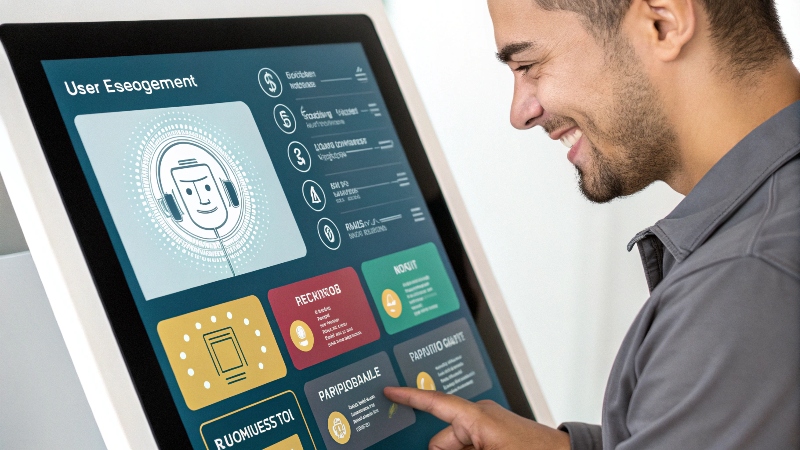
Kiosks offer many advantages. Let's break them down.
Enhancing Operational Efficiency
Kiosks can take over many repetitive tasks. This means your staff do not have to do them. For example, kiosks can take orders in a restaurant. They can also process bill payments. This happens much faster than a person sometimes. Many kiosks can work 24 hours a day, 7 days a week. This means your business can serve customers even when staff are not there. I've seen our clients at OSK use kiosks to manage queues. This makes the whole operation smoother. They can handle more customers without needing more space or more people. This automation is a big step forward for any service-based company.
Improving Customer Experience
Customers usually like kiosks. They mean shorter wait times. People do not like standing in long lines. Kiosks give customers more control. They can go at their own pace. They can also make choices in private. Some kiosks can even offer personalized deals. For example, if a customer buys one item, the kiosk might suggest another item that goes with it. This makes the experience better for the customer. It can also mean more sales for the business. Happy customers are more likely to come back.
Here is a table showing some key benefits:
| Benefit Category | Specific Advantage | Impact on Business |
|---|---|---|
| Cost Reduction | Lower staffing needs | Increased profitability |
| Efficiency Gains | Faster transaction times | Higher throughput |
| Customer Satisfaction | Shorter queues, user empowerment | Improved loyalty |
| Data Collection | Insights into customer behavior | Informed strategies |
As a manufacturer at OSK, I've seen firsthand how businesses across various sectors, from retail to healthcare, implement our kiosks. For example, one retail client used our self-checkout systems. They reduced checkout times by nearly 40%. This not only pleased customers but also allowed their staff to focus on more complex support tasks and improve overall store engagement.
What are the benefits of self check in kiosks?
Long check-in lines frustrate everyone. Staff get overwhelmed, and guests start stressed. Self check-in kiosks offer a smooth alternative.
Self check-in kiosks greatly reduce waiting times, lessen staff workload, and boost accuracy. They offer convenience for users and operational efficiency for places like hotels or clinics.
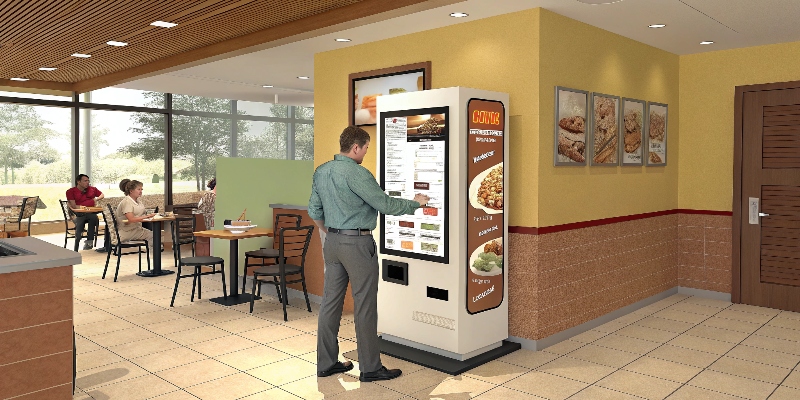
Self check-in kiosks are becoming very popular. Here is why.
Streamlining the Arrival Process
The main benefit is speed and convenience for guests. Imagine arriving at a hotel after a long trip. You just want to get to your room. A self check-in kiosk lets you do that quickly. Many systems can link with pre-registration done online. Guests might just need to scan a QR code or enter a booking number. Some kiosks can scan IDs and dispense key cards. This is very useful in hotels, airports, and even healthcare clinics for patient arrivals. I remember installing our first batch of check-in kiosks for a hospital group. The feedback was immediate: patients felt less stress and the waiting room was much calmer.
Advantages for Staff and Operations
These kiosks also help the business and its staff. They reduce long lines at the reception desk. This means staff are less stressed. They can then focus on guests who have more complex needs or questions. When guests enter their own information into a kiosk, there are often fewer errors. This means the business has more accurate records. Kiosks can also sometimes offer upgrades or additional services during check-in. This can lead to more revenue. For example, a hotel kiosk might offer a room with a better view for a small extra charge.
Here’s how self check-in kiosks help:
| Feature of Self Check-in | Benefit for Guests | Benefit for Business |
|---|---|---|
| 24/7 Availability | Check-in anytime, less stress | Handles off-peak arrivals easily |
| Reduced Queues | Faster, more pleasant arrival | Improved guest flow |
| Data Accuracy | Guest enters own information correctly | Fewer errors in records |
| Upselling Opportunities | Can offer room upgrades, services | Increased revenue potential |
I recall a project where we at OSK supplied self check-in kiosks to a chain of budget hotels. They reported a dramatic decrease in front-desk congestion. More importantly, guest satisfaction scores related to the check-in process went up significantly. It showed me how a well-designed tech solution, like our robust and user-friendly kiosks, can really change the customer journey for the better.
What is self-service and why is it important?
Customers today want control and speed. Old service models feel slow, restrictive. Self-service empowers users, meeting modern expectations.
Self-service allows customers to complete tasks on their own, without direct staff help. It's important because it meets demands for speed, convenience, and user control, enhancing satisfaction.
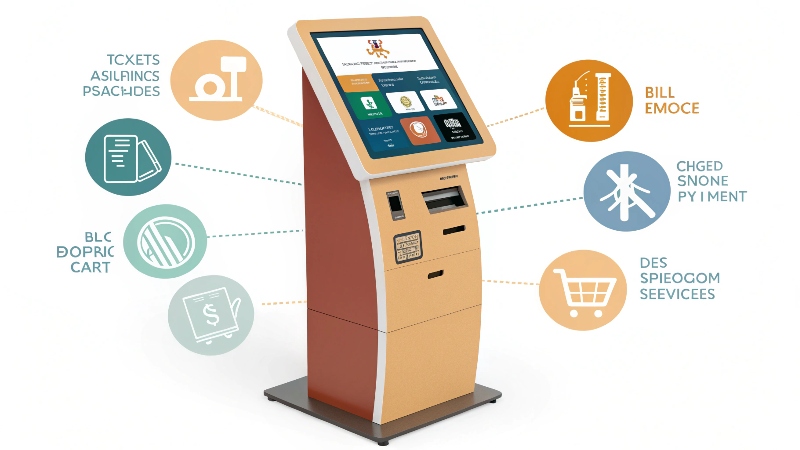
Self-service is a broad idea. Let's look closer.
Defining Self-Service in the Modern Era
Self-service means users do things themselves. They use technology to complete tasks instead of asking an employee. We see self-service everywhere now. Online banking is self-service. ATMs are self-service. Mobile apps for ordering food are self-service. Kiosks are a very important physical part of self-service. They provide a dedicated machine for people to use in places like stores, airports, or government offices. As a company, OSK designs kiosks to make these interactions easy. The goal is to make the task simpler for the user, not more complicated. This shift towards user independence is a major trend.
The Growing Importance of Autonomy
Why do customers like self-service so much? A big reason is control. People like to manage their own tasks. They can go at their own speed. They can do things when it suits them, not just when a staff member is free. For many, there is also a sense of privacy. They might not want to discuss their choices or information with a stranger. Businesses that offer good self-service options are often seen as modern. They appear efficient and customer-focused. This perception is very valuable. It helps build trust and loyalty with customers who expect these conveniences.
Consider these points about self-service:
| Aspect of Self-Service | Why It's Important for Customers | Why It's Important for Businesses |
|---|---|---|
| Empowerment | Control over their transaction/task | Reduced staff intervention for simple tasks |
| Speed & Efficiency | Faster completion, less waiting | Higher transaction volume, lower costs |
| Accessibility | Often 24/7, convenient locations | Extended service hours without more staff |
| Personalization | Can tailor options based on input | Opportunities for targeted offers |
We at OSK believe strongly in the power of self-service. It's not just about the technology; it's about a fundamental shift in how services are delivered and experienced. We design our kiosks to be incredibly intuitive. We know that if the user struggles with the interface, the whole point of self-service is lost. It absolutely has to be easier, or at least as easy, as interacting with a person for those routine tasks. That's a core principle in our R&D and design process.
What is the main purpose of a kiosk?
Businesses need versatile customer tools. Different situations need different answers. Kiosks offer focused, efficient service for specific tasks.
The main purpose of a kiosk is to provide specific information or services to users in an automated, efficient way. This improves convenience and accessibility for various transactions.
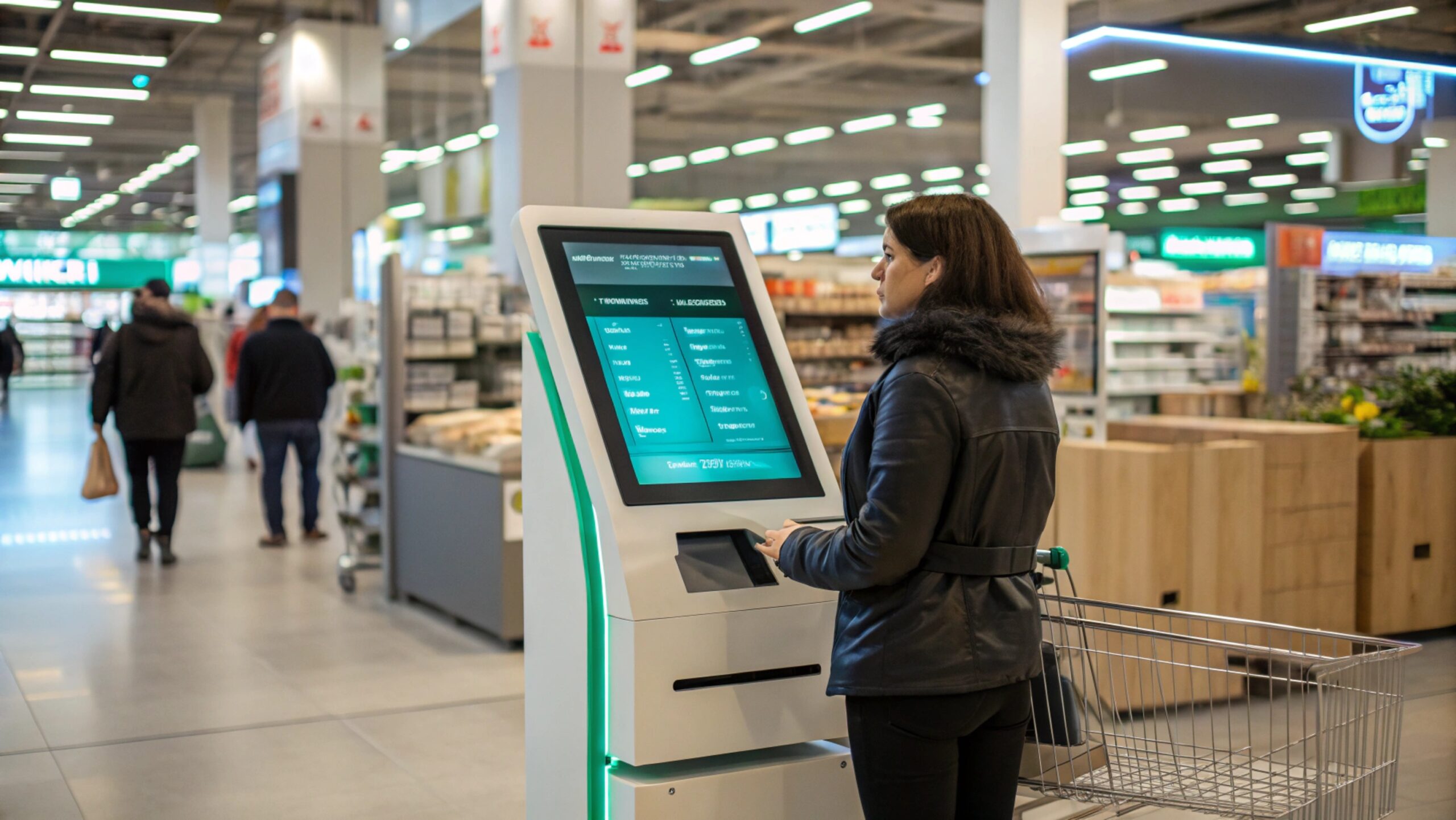
Kiosks are designed for specific jobs. Let's explore this.
Core Functions: Information and Transaction
Most kiosks have one of two main jobs. They either give information or they help with a transaction. Information kiosks are for things like finding your way in a mall. They can show product details in a store. They might list names in a building directory. Transactional kiosks let people do things. This includes making payments, buying tickets, ordering food, or checking in and out of places. The key idea is that the kiosk is built to do a defined task very well. It's not like a general computer that can do many things. It's specialized. This focus helps make them effective and easy to use for their specific role.
Kiosks as Specialized Service Points
Kiosks are different from your home computer or phone. They are usually placed in public areas. They need to be strong and secure. They are designed for a particular environment and the needs of users in that place. For example, an outdoor ticketing kiosk needs to withstand weather. An indoor payment kiosk needs strong security for financial transactions. At OSK, our manufacturing process, which includes CNC machining and rigorous testing in our EMI/EMC and environmental labs, ensures each kiosk is built to be reliable and durable for its specific purpose. This specialization is what makes them so useful for businesses.
Here's a look at different kiosk types and their purposes:
| Kiosk Type | Primary Purpose | Common Use Cases | Key Design Consideration |
|---|---|---|---|
| Informational | Provide data, guidance, directions | Mall directories, museum exhibits, product lookups | Clarity, ease of navigation |
| Transactional | Enable self-service completion of tasks | Bill payment, ticket sales, food ordering, check-in | Security, speed, accuracy |
| Internet | Offer public web access | Libraries, airports, community centers | Robustness, content filtering |
| Wayfinding | Help users navigate physical spaces | Hospitals, large campuses, shopping centers | Interactive maps, clear paths |
At OSK, when we design and build a kiosk, the "purpose" is our absolute starting point. We ask: Is it for quick payments? Or is it for detailed information browsing? This fundamental question dictates everything that follows, from the screen size and component selection to the software interface and enclosure design. Our factory's advanced capabilities and our ISO 9001 certification ensure each kiosk is manufactured precisely for its intended purpose. This delivers the reliability our clients in over 30 countries have come to expect from us.
Conclusion
Self-service kiosks are essential for modern businesses. They boost efficiency, cut costs, and improve customer satisfaction, driving growth and better service for everyone involved.

